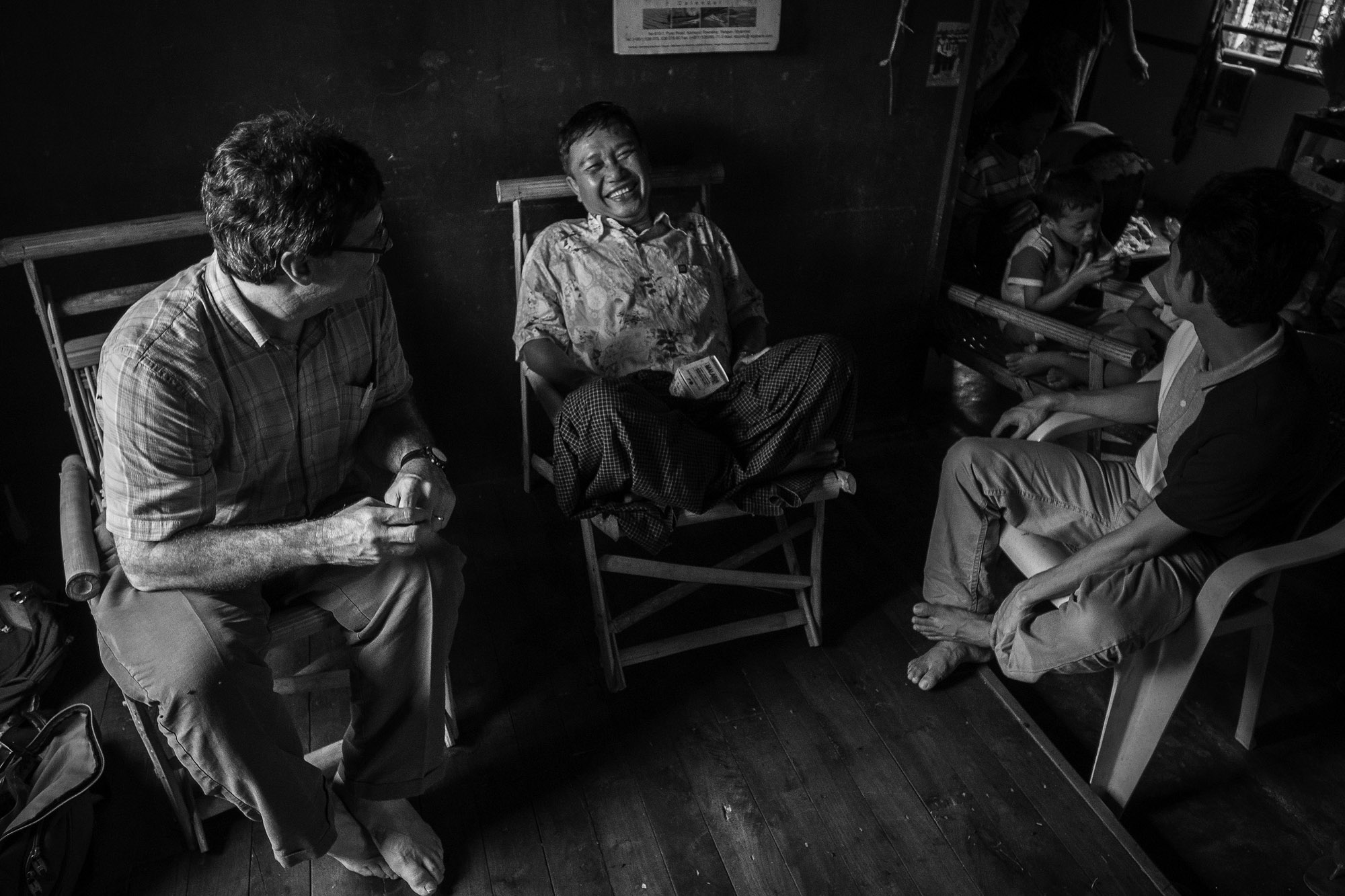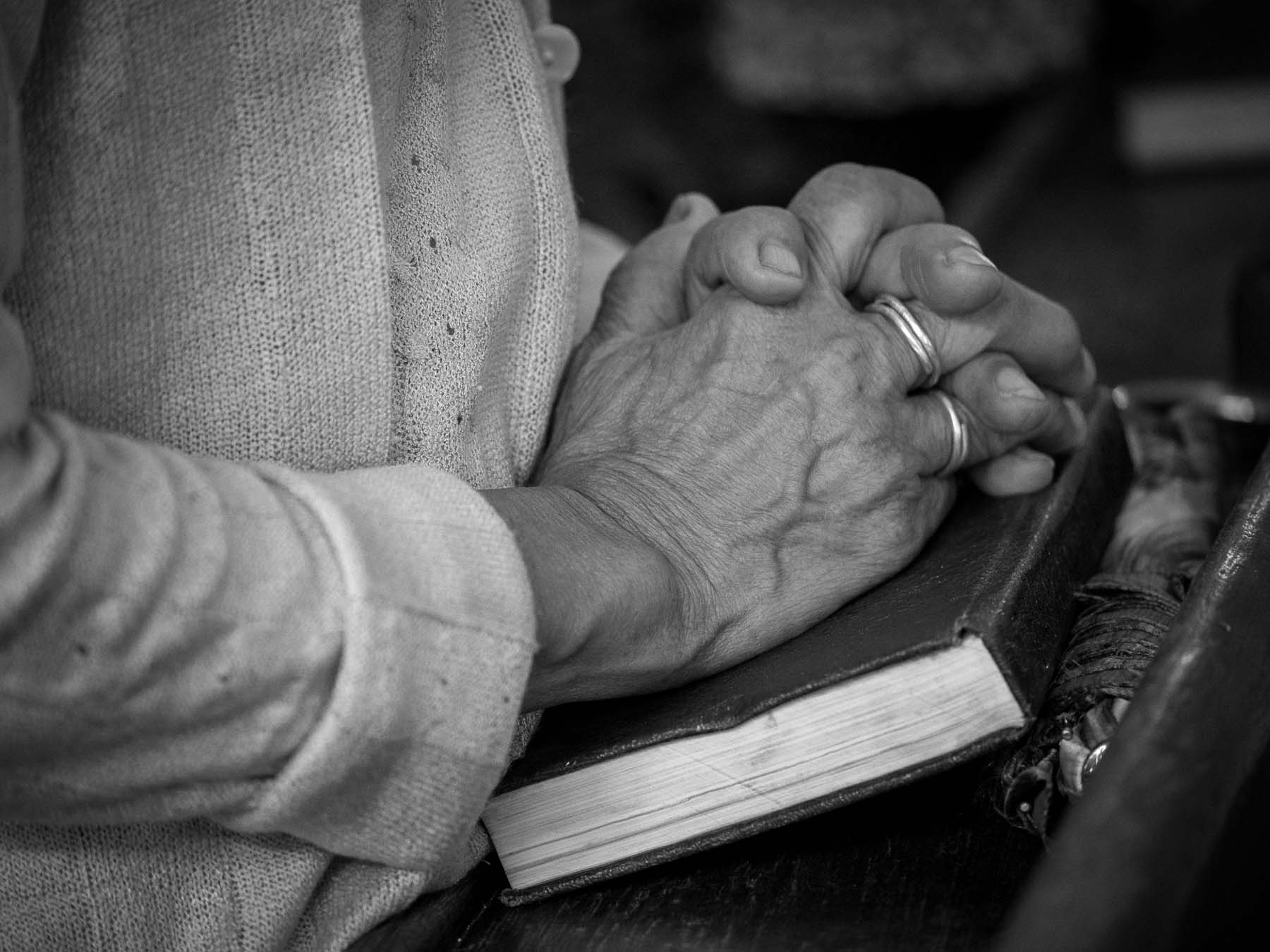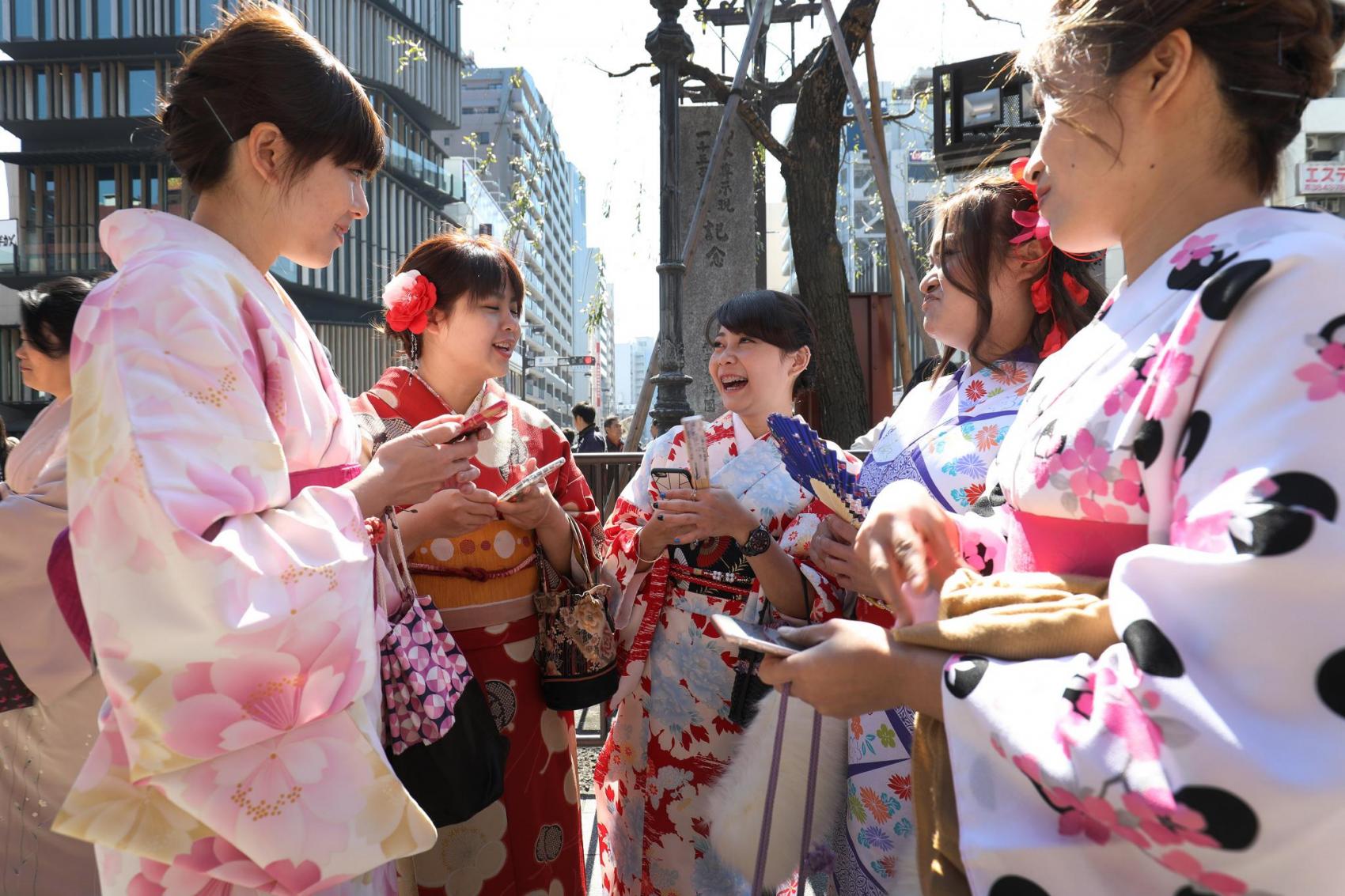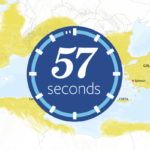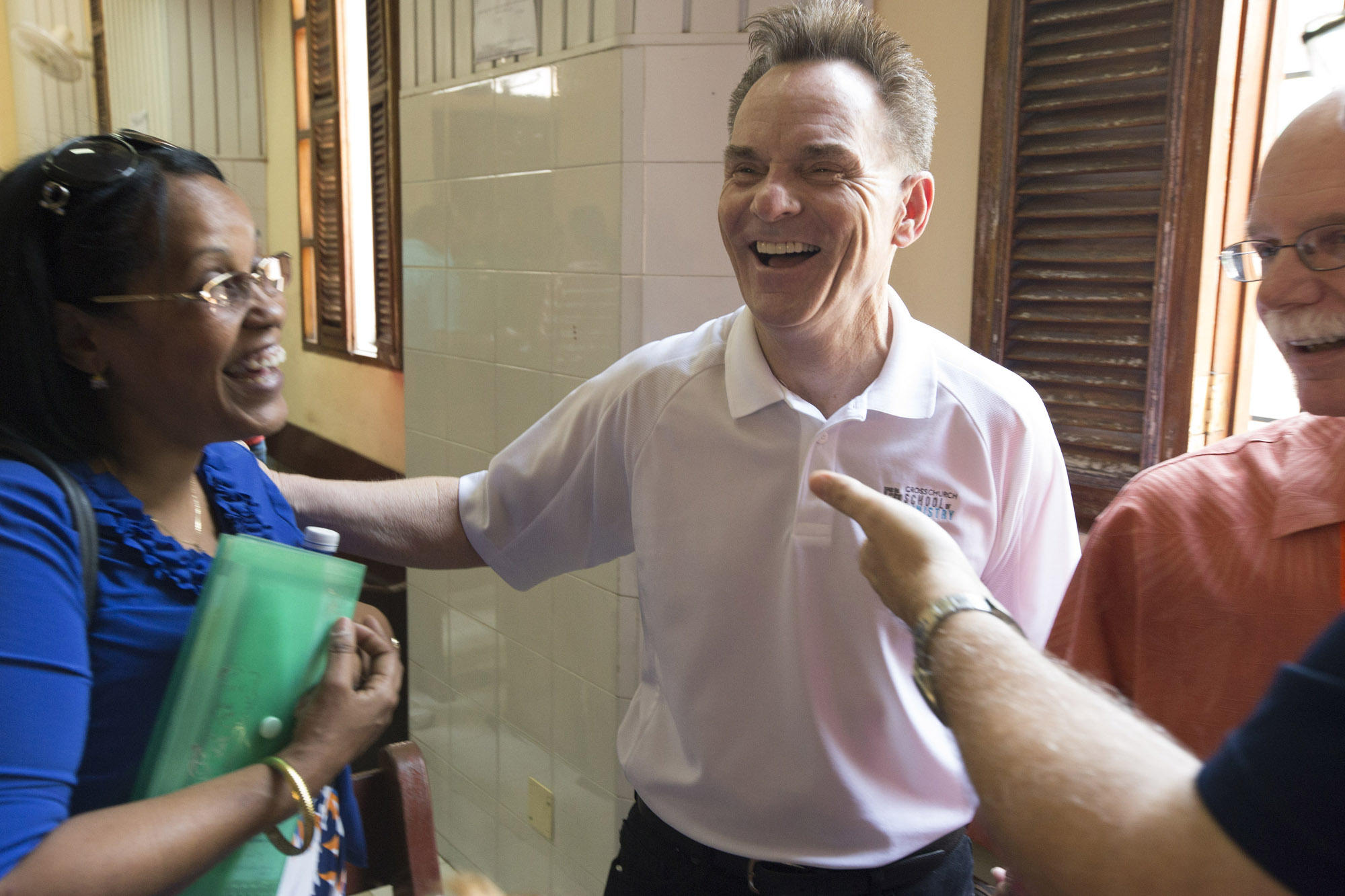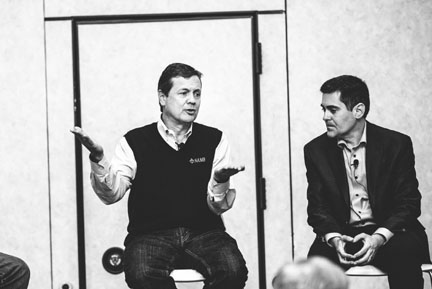
[SLIDESHOW=41615,41616,41617,41618]EDITOR’S NOTE: Old Town Baptist Church in Winston-Salem, N.C., that partners with missionaries in Southeast Asia to reach the “T” people, is featured during this year’s Week of Prayer for International Missions in the Southern Baptist Convention Nov. 29-Dec. 6. The Week of Prayer, with the theme “Because of Who He Is” from Psalm 96:3 (HCSB), undergirds the Lottie Moon Christmas Offering for International Missions. The offering, in tandem with Cooperative Program gifts from Southern Baptist churches, supports international workers in seeking to fulfill the Great Commission. Gifts to the Lottie Moon offering are received through local Southern Baptist churches or online at imb.org, where there are resources to promote the offering. This year’s goal is $175 million.
Please see related missions feature below this article.
SOUTHEAST ASIA (BP) — Mark Harrison’s focus appeared to be solely on the family he had come to visit.
It wasn’t the North Carolina pastor’s first visit to this home in a remote Southeast Asian village tucked among lush, green mountains. He had visited the family during other trips to the villages of the “T” people. Although the youngest sister and her husband had become Christians, her parents and three sisters never seemed interested in the Gospel.
So Harrison hadn’t planned to stop that day. Tired from traveling all day, he was headed to the rickety wooden boat that would take him back across the river.
But when a local believer called him, Harrison, missions pastor at Old Town Baptist Church in Winston-Salem, knew he needed to go with him to visit this family again.
Early on, Harrison and Old Town had decided to focus their strategy to reach the people group on encouraging and discipling local believers to share the Gospel.
“They [local believers] know the language. They know the culture. They understand the ins and outs of everyday life. They have access to the people,” Harrison said.
After more than a dozen trips to the people group’s villages in the past five years, Harrison and Old Town members have seen T people turn from Buddhism, believe in Jesus and then lead others to faith in Jesus.
Yet believers are still few among this unreached people group that is staunchly Buddhist. Less than 1 percent of the nearly 1.5 million people believe in Jesus.
“The T people are deeply rooted in their animistic and Buddhist background,” Harrison said. They’re very attracted to the Gospel, he noted, but hesitant to let go of their heritage.
That’s the story at the home of the four sisters. As Harrison scooted closer to help the oldest sister tie a knot on the bracelet she had made — a beaded bracelet telling the story of creation and salvation — he asked if she’d ever thought about trusting in Jesus.
“She was very interested in the Gospel, but could not say yes to Jesus. She wanted to choose both,” Harrison said. “She wanted all the benefits of following Jesus, and yet [to] maintain her religion.”
The woman is afraid family and friends will reject her if she leaves Buddhism.
“You are so close to experiencing the love of the Living God,” Harrison said. “I pray you will have courage to say ‘yes’ to Jesus, no matter the cost.”
Ever since they committed to sharing the Gospel among the people group, Harrison and Old Town have prayed for them to have courage to leave Buddhism.
When the church began praying about engaging an unreached, unengaged people group, Southeast Asia missionaries such as William and Mallory Ritz* helped guide them to the T people and helped them learn about the people group and Southeast Asian culture.
“We help build partnerships between our Southern Baptist churches in America — with our national partners and existing field personnel,” William said.
William and Mallory are able to serve in Southeast Asia because Southern Baptist churches give through the Cooperative Program and Lottie Moon Christmas Offering for International Missions.
“We want to help our churches in America develop strategies toward reaching, equipping and training,” he said.
Old Town’s strategy to partner with local believers is working. Before stopping at the sisters’ home, Harrison visited a young believer named Met,* a motorcycle repairman whom Old Town had helped disciple.
“As our teams go to his village we always stop by his house to encourage him and nurture him along in his faith,” Harrison said.
Met had invited a former Buddhist monk to his bamboo hut to meet Harrison. When he came to have his bike repaired, the former monk explained, Met shared the Gospel and led him to faith in Jesus.
Harrison said, “It’s exciting to see that a man from the T people background, through the influence of another T person, made a commitment of his life to Christ. This is an incredible evidence of the activity of God.”
As T believers continue helping Harrison and Old Town learn about their people and culture, Harrison and Old Town in turn help them learn to share their faith.
Before visiting Met, Harrison began his busy day with Thura,* a local believer with whom he had spent time a few months earlier, teaching him to share the Gospel.
Thura shares the Gospel although his father, the village leader and a Buddhist, doesn’t want him to.
Thura asked Harrison to teach and pray with Nanda,* who had believed in Jesus after Thura shared the Gospel with him. The men sat at an outside restaurant until the glares became too distracting. The foreigner — and the Christian conversation — were not welcome.
So they crossed the dirt road to Nanda’s home. On the porch Nanda’s young daughter swung her legs back and forth in her plastic chair, gently resting her head on her dad’s shoulder as he told how he turned from Buddhism to trust in Jesus.
And as he talked, answered prayers unfolded before Harrison.
“The seed of the Gospel has taken root in their hearts and is now growing,” Harrison said.
He could leave with confidence that the new family of faith established there could continue to grow and sow the seed of the Gospel among their neighbors.
Find resources for churches at imb.org to learn more about and promote the Lottie Moon offering. While Southern Baptists are encouraged to give to the offering through their churches, a “Give Now” option is available for individual online gifts.
**********
Partnerships that work: Gospel impact
multiplied when missionaries & church partner
By Paige Turner
SOUTHEAST ASIA (BP) — The task seemed so overwhelming that Mark Harrison had no idea how or where to begin.
He wondered, with more than 3,000 unengaged, unreached people groups throughout the world, how do you choose one to engage with the Gospel? Especially if you’ve never done it before.
“I was desperate,” said Harrison, missions pastor at Old Town Baptist Church in Winston-Salem, N.C. “What was I supposed to do? Just throw a dart at the map and wherever it lands show up?”
Because Harrison believed God was leading the church to take the Gospel to a people group that had never heard, he didn’t give up. For one year Harrison and church members prayed for God to show them the people group they were to reach.
“One day I was on a plane traveling home and I was praying. When I opened my eyes, I saw the map on the back of the seat charting our route and my eyes went to a body of water in Southeast Asia,” Harrison explained. “God said, ‘Don’t worry about it. Your people group is right here.'”
God led Old Town to the T people, a people group that’s less than 1 percent Christian.
But in order to expand their ministry in suburban North Carolina to remote Southeast Asian villages, Old Town needed some help.
“Our journey really started when a missionary was willing to invest in me, a missions pastor who didn’t know a thing about what he was doing but was willing to learn and to be a partner for the sake of making Jesus known,” Harrison said.
Martin Cranford,* an IMB missionary in Southeast Asia, helped Harrison and Old Town church members learn about the T people and strategies for reaching them. He connected Harrison with local partners who translated and served alongside their church as they made several trips a year to T people villages.
“Martin helped empower us to do the work,” Harrison said. “He didn’t give us everything at once, but slowly brought us along, easing us into the process.”
Gifts through the Lottie Moon Christmas Offering and Cooperative Program make it possible for missionaries such as Cranford not only to serve among unreached people groups themselves, but also to train and equip Southern Baptist churches such as Old Town to join them.
Old Town is committed to supporting the Lottie Moon Christmas Offering and also has a “deep commitment to come alongside our IMB partners and work with them on the ground,” Harrison said.
As Harrison has seen T people come to faith in Jesus, he knows that partnerships between churches and missionaries multiply efforts to bring the Gospel to people groups that haven’t heard about Jesus.
While Harrison is the first to say he’s still learning about partnerships, Old Town’s journey has helped him recognize important aspects necessary for a partnership that’s beneficial for both church and missionary.
Here are a few of Harrison’s suggestions:
1. Focus on relationships
A partnership grows out of a relationship when the church and missionary learn to build trust and invest in each other. Relationships take time to develop, so expect to devote time to truly getting to know one another.
Bring overseas relationships home with you by telling others about the unreached people you meet. Tell them about their culture, family and prayer needs. You’ll get to know and love the unreached people group you work with. And you can help others in your congregation do the same.
2. Communicate
Maintain frequent communication with your missionary partners and be honest with them. Don’t be shy to ask questions if you’re confused about what to do. Keep the missionary updated on progress and areas of success and struggle.
3. Learn
Be a church willing to learn and to do things outside your preference for the sake of advancing the Gospel in a different cultural context. Allow your missionary partners to teach you about the people group and their needs, challenges, culture and spiritual barriers. Learn your partners’ ministry strategy and how to best come alongside and serve in a way that’s compatible.
Ask about field logistics, such as how to arrange for things like lodging, translators and taxi drivers. The more you learn how to handle these things on your own, the more time you, and your partners, will spend engaged in ministry.
4. Set expectations
Whether it’s food, lodging or transportation, there’s a good chance your church won’t be fond of everything overseas. Seeing God save souls is by far worth temporarily leaving the comforts of home. Keep that perspective as you serve overseas.
Also, be sure to maintain a realistic expectation of “success.” Reaching the unreached isn’t easy. Success after one month or even one year may not equal a huge number of people following Christ. Your missionary partners can help you set realistic expectations.
5. Evaluate
Talk with your missionary partners often about the partnership progress. What’s working and what isn’t? Are you learning to navigate field logistics on your own? Are you becoming more comfortable in your work among the people group? If not, what can you and the missionary do to change things?
If your church is ready to go, visit imb.org/send to learn more about beginning your journey to reaching the unreached.
Find resources for churches at imb.org to learn more about and promote the Lottie Moon offering. While Southern Baptists are encouraged to give to the offering through their churches, a “Give Now” option is available for individual online gifts.
*Name changed.
